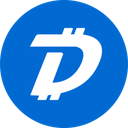-
 Bitcoin
Bitcoin $83,880.0364
2.80% -
 Ethereum
Ethereum $1,808.9871
2.05% -
 Tether USDt
Tether USDt $0.9996
-0.02% -
 XRP
XRP $2.1254
5.18% -
 BNB
BNB $597.0415
1.77% -
 Solana
Solana $121.8511
6.23% -
 USDC
USDC $0.9999
-0.02% -
 Dogecoin
Dogecoin $0.1711
8.55% -
 Cardano
Cardano $0.6607
4.73% -
 TRON
TRON $0.2400
1.83% -
 UNUS SED LEO
UNUS SED LEO $9.4688
0.77% -
 Chainlink
Chainlink $12.9117
3.28% -
 Toncoin
Toncoin $3.3769
-5.92% -
 Stellar
Stellar $0.2595
1.51% -
 Avalanche
Avalanche $18.0323
0.37% -
 Sui
Sui $2.2780
2.94% -
 Shiba Inu
Shiba Inu $0.0...01226
1.24% -
 Hedera
Hedera $0.1649
3.59% -
 Litecoin
Litecoin $84.3834
3.43% -
 Polkadot
Polkadot $4.0619
1.74% -
 MANTRA
MANTRA $6.2855
-1.22% -
 Bitcoin Cash
Bitcoin Cash $299.4248
1.74% -
 Bitget Token
Bitget Token $4.5468
1.98% -
 Dai
Dai $0.9999
-0.01% -
 Ethena USDe
Ethena USDe $0.9992
-0.02% -
 Monero
Monero $215.2689
2.79% -
 Hyperliquid
Hyperliquid $11.8405
4.32% -
 Uniswap
Uniswap $5.8764
3.23% -
 Pi
Pi $0.5380
-5.19% -
 Pepe
Pepe $0.0...07139
9.88%
One minute to understand what a cryptocurrency airdrop is
Cryptocurrency airdrops are free distributions of tokens or coins to potential users, serving as marketing tools to increase awareness, build a community, and reward early adopters.
Oct 19, 2024 at 08:54 pm
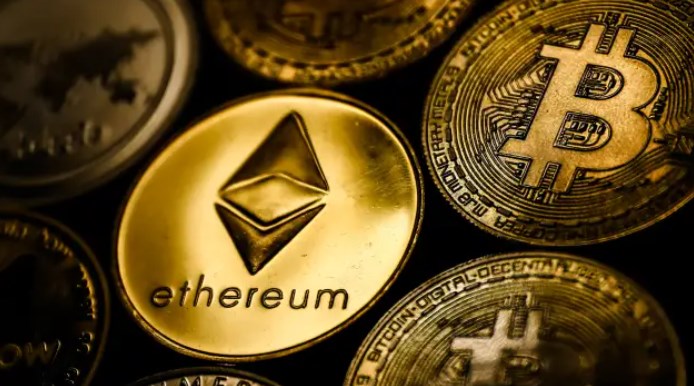
What is a Cryptocurrency Airdrop?
A cryptocurrency airdrop is a marketing strategy where a blockchain project distributes free tokens or coins to potential users. These airdrops aim to increase awareness, build a community, and reward early adopters.
How an Airdrop Works:
- Project Announcement: A blockchain project announces an airdrop and establishes eligibility criteria.
- Eligibility Requirements: Users typically need to meet certain conditions, such as holding a particular cryptocurrency, following social media accounts, or completing tasks.
- Token Distribution: The project distributes tokens to eligible wallets, usually via snapshots or blockchain protocols.
- Claimable Period: Users have a specific period to claim the airdropped tokens.
- Wallet Support: Users may need to create or update wallets that support the distributed token.
Types of Airdrops:
- Standard Airdrop: Free tokens distributed to users who meet specific criteria.
- Holder Airdrop: Tokens airdropped to holders of another specific cryptocurrency.
- Referral Airdrop: Users earn tokens for referring new users to the project.
- Bounty Airdrop: Tokens distributed as rewards for completing specific tasks, such as writing content or translating documents.
- Exclusive Airdrop: Tokens reserved for a select group of users, such as investors or influencers.
Benefits of Airdrops:
- Increased Awareness: Airdrops can draw attention to new blockchain projects.
- Community Building: They encourage participation and foster a sense of belonging.
- Early Adopter Rewards: Airdrops reward users for supporting the project early on.
- Liquidity: Airdropped tokens can increase the liquidity of a project's ecosystem.
- Marketing: Airdrops can be an effective way to market a project's token and reach potential users.
Risks of Airdrops:
- Scams: Some airdrops may be fraudulent or used to steal sensitive information.
- Dumping: Airdropped tokens may be immediately sold, which can impact the token's value.
- Low Quality Projects: Airdrops can sometimes be associated with projects that have weak fundamentals or lack long-term prospects.
- Tax Implications: Airdrops may be subject to taxation depending on the jurisdiction.
- Complexity: Some airdrops involve complex eligibility requirements or technical challenges.
Disclaimer:info@kdj.com
The information provided is not trading advice. kdj.com does not assume any responsibility for any investments made based on the information provided in this article. Cryptocurrencies are highly volatile and it is highly recommended that you invest with caution after thorough research!
If you believe that the content used on this website infringes your copyright, please contact us immediately (info@kdj.com) and we will delete it promptly.
- In the middle of the fading of the dynamics of Solana (SOL) gather at 131 US dollars
- 2025-04-05 02:20:12
- Polkadot (DOT -5.15%) cryptocurrency isn't getting any market love these days
- 2025-04-05 02:20:12
- XRP Struggles to Hold Key Support Levels as Broader Market Downturn Intensifies
- 2025-04-05 02:15:12
- Flowdesk Joins Canton Network's Initiative to Create Advanced On-Chain Solution for Collateral and Margin Management
- 2025-04-05 02:15:12
- OKX Wallet Expands Its Horizons by Collaborating with StakeStone to Offer Unique $STO Airdrop Bonus
- 2025-04-05 02:10:12
- RXR.Lab Highlights: The Future of the Gambling Industry Is Decentralized
- 2025-04-05 02:10:12
Related knowledge
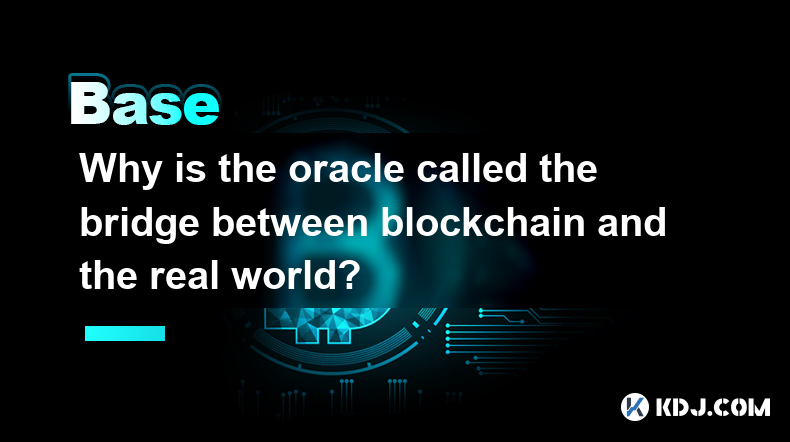
Why is the oracle called the bridge between blockchain and the real world?
Apr 04,2025 at 04:00am
The concept of an oracle in the cryptocurrency and blockchain world is crucial for understanding how these decentralized systems interact with external data. The oracle is often referred to as the bridge between blockchain and the real world because it serves as a vital intermediary that fetches, verifies, and transmits off-chain data to the on-chain en...
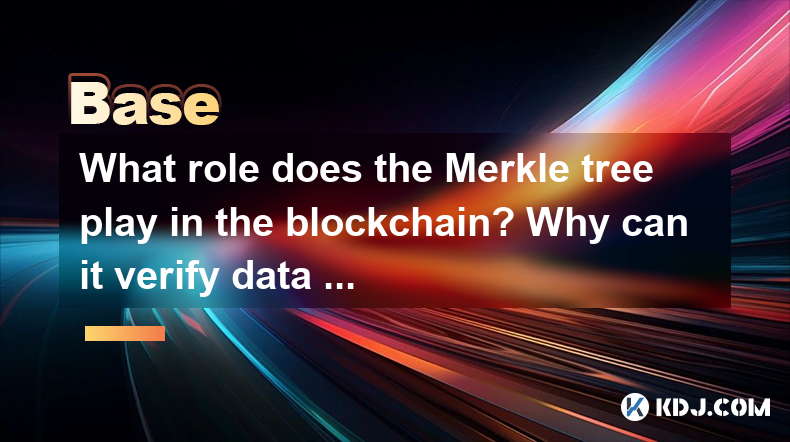
What role does the Merkle tree play in the blockchain? Why can it verify data integrity?
Apr 04,2025 at 01:29pm
The Merkle tree plays a crucial role in the blockchain, primarily due to its ability to efficiently and securely verify data integrity. This article will delve into the structure of a Merkle tree, its implementation in blockchain, and how it ensures the integrity of data. Understanding the Structure of a Merkle TreeA Merkle tree, also known as a hash tr...
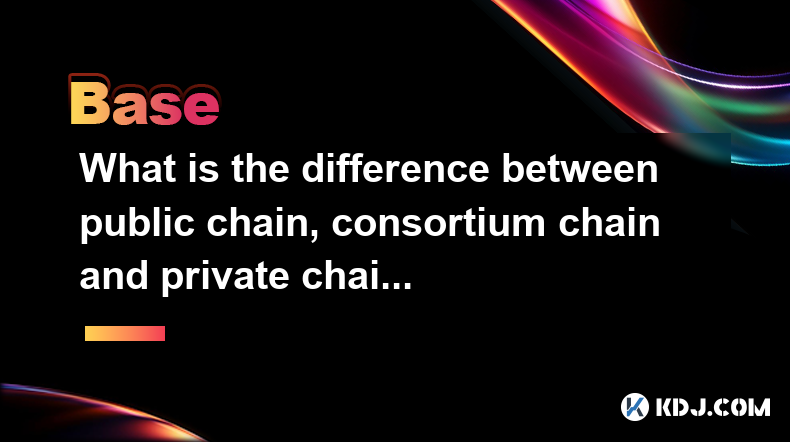
What is the difference between public chain, consortium chain and private chain? What scenarios are suitable for each?
Apr 04,2025 at 09:21pm
In the world of blockchain technology, understanding the differences between public chains, consortium chains, and private chains is crucial for selecting the right type of blockchain for specific applications. Each type of blockchain has its own unique characteristics and use cases, which we will explore in detail. Understanding Public ChainsPublic cha...
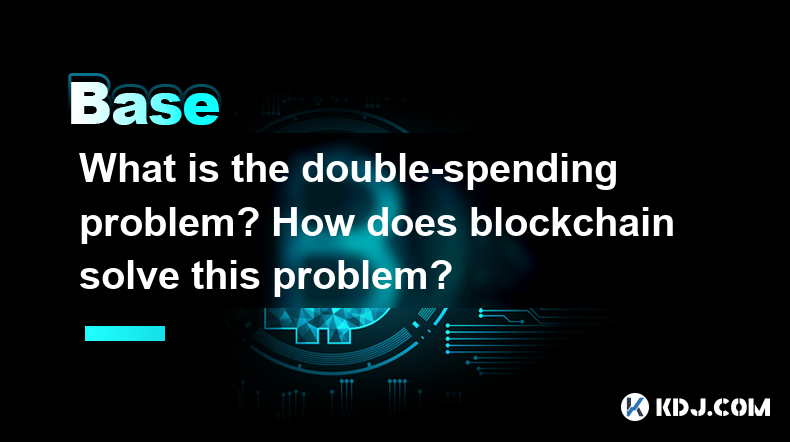
What is the double-spending problem? How does blockchain solve this problem?
Apr 04,2025 at 09:07am
The double-spending problem is a significant challenge in the realm of digital currencies. Double-spending refers to the potential for a digital currency to be spent more than once. This issue arises because digital files, unlike physical cash, can be easily duplicated. If not addressed, double-spending could undermine the integrity and trust in any dig...
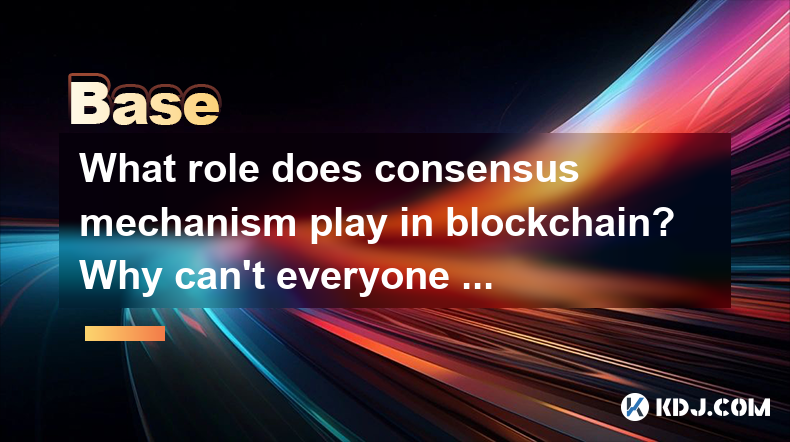
What role does consensus mechanism play in blockchain? Why can't everyone keep accounts?
Apr 05,2025 at 12:29am
The consensus mechanism is a fundamental component of blockchain technology, serving as the backbone for maintaining the integrity and security of the network. It ensures that all participants in the network agree on the state of the ledger, which is crucial for the decentralized nature of blockchain. Without a consensus mechanism, the decentralized sys...
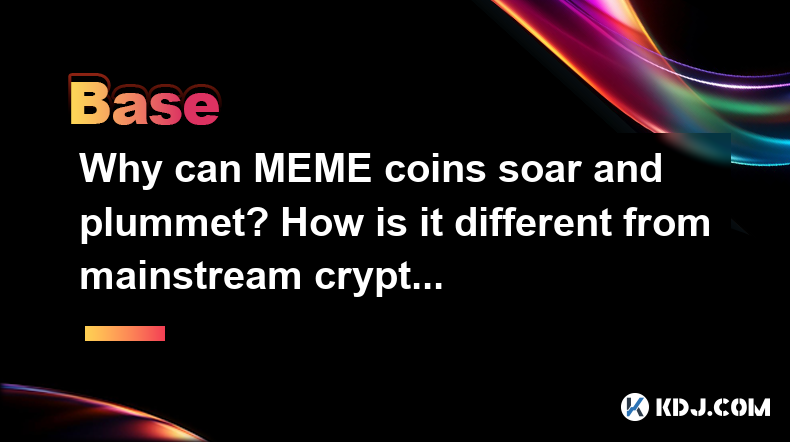
Why can MEME coins soar and plummet? How is it different from mainstream cryptocurrencies?
Apr 04,2025 at 03:07pm
The world of cryptocurrencies is vast and diverse, with a wide range of digital assets that cater to different needs and interests. Among these, MEME coins have carved out a unique niche, often experiencing dramatic price fluctuations that can both soar and plummet in a short period. This phenomenon, while intriguing, differs significantly from the beha...

Why is the oracle called the bridge between blockchain and the real world?
Apr 04,2025 at 04:00am
The concept of an oracle in the cryptocurrency and blockchain world is crucial for understanding how these decentralized systems interact with external data. The oracle is often referred to as the bridge between blockchain and the real world because it serves as a vital intermediary that fetches, verifies, and transmits off-chain data to the on-chain en...

What role does the Merkle tree play in the blockchain? Why can it verify data integrity?
Apr 04,2025 at 01:29pm
The Merkle tree plays a crucial role in the blockchain, primarily due to its ability to efficiently and securely verify data integrity. This article will delve into the structure of a Merkle tree, its implementation in blockchain, and how it ensures the integrity of data. Understanding the Structure of a Merkle TreeA Merkle tree, also known as a hash tr...

What is the difference between public chain, consortium chain and private chain? What scenarios are suitable for each?
Apr 04,2025 at 09:21pm
In the world of blockchain technology, understanding the differences between public chains, consortium chains, and private chains is crucial for selecting the right type of blockchain for specific applications. Each type of blockchain has its own unique characteristics and use cases, which we will explore in detail. Understanding Public ChainsPublic cha...

What is the double-spending problem? How does blockchain solve this problem?
Apr 04,2025 at 09:07am
The double-spending problem is a significant challenge in the realm of digital currencies. Double-spending refers to the potential for a digital currency to be spent more than once. This issue arises because digital files, unlike physical cash, can be easily duplicated. If not addressed, double-spending could undermine the integrity and trust in any dig...

What role does consensus mechanism play in blockchain? Why can't everyone keep accounts?
Apr 05,2025 at 12:29am
The consensus mechanism is a fundamental component of blockchain technology, serving as the backbone for maintaining the integrity and security of the network. It ensures that all participants in the network agree on the state of the ledger, which is crucial for the decentralized nature of blockchain. Without a consensus mechanism, the decentralized sys...

Why can MEME coins soar and plummet? How is it different from mainstream cryptocurrencies?
Apr 04,2025 at 03:07pm
The world of cryptocurrencies is vast and diverse, with a wide range of digital assets that cater to different needs and interests. Among these, MEME coins have carved out a unique niche, often experiencing dramatic price fluctuations that can both soar and plummet in a short period. This phenomenon, while intriguing, differs significantly from the beha...
See all articles



















































































